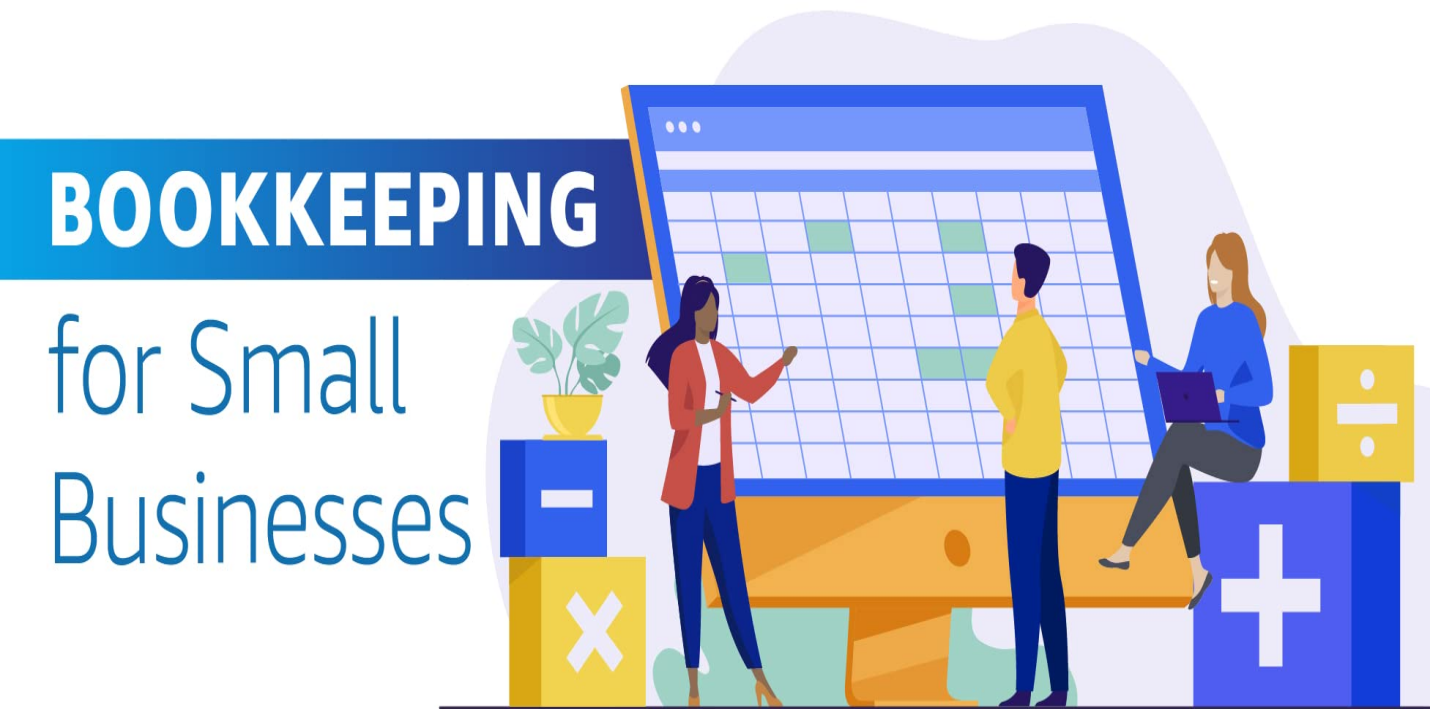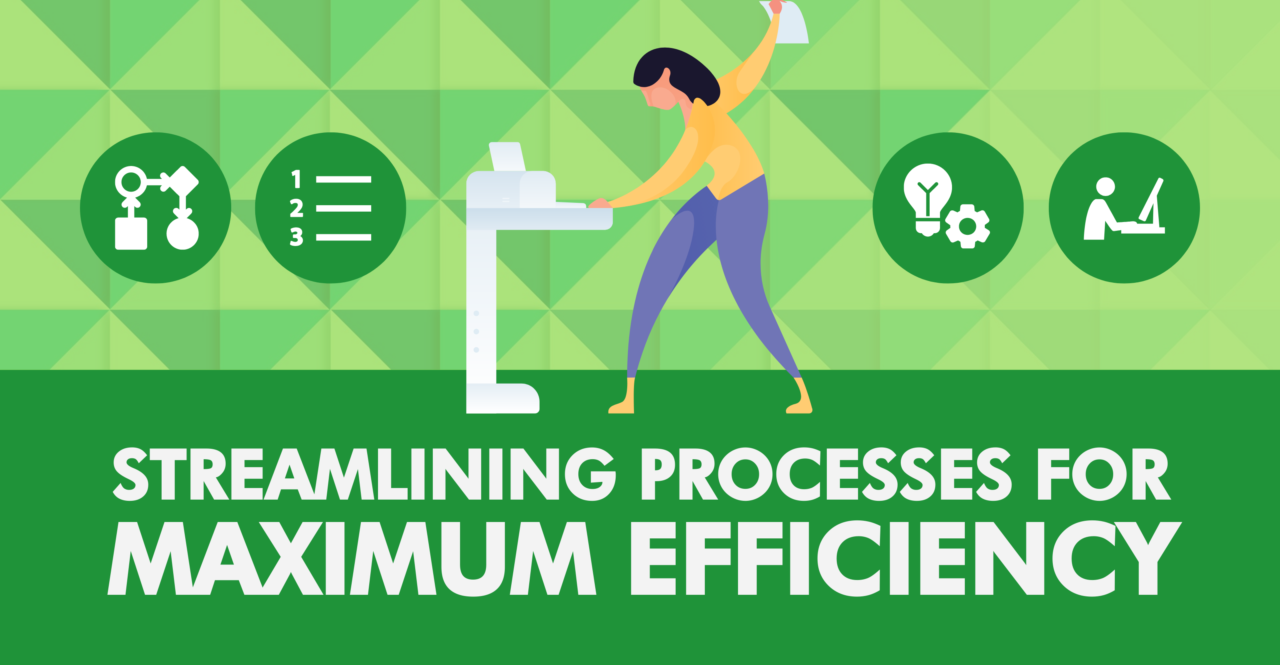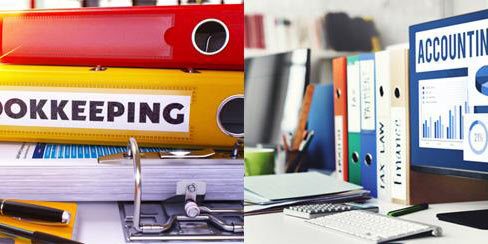Business Bookkeeping vs. Personal Bookkeeping: What's the Difference?
Susan Kelly
Dec 12, 2023
Bookkeeping can be daunting, whether for business or personal funds, but understanding the difference between business and personal bookkeeping is essential to keeping your finances safe and organized.
Every individual or organization has unique needs for budgeting, tracking income and expenses, managing taxes, etc., and so does each type of financial record-keeping: Businesses have their requirements distinct from those services needed in personal finance.
In this blog post, we'll go beyond a surface-level comparison between these two types of bookkeeping we’ll provide details about what you need to know to choose the best service for yourself and your organization's particular situation.
Definition of Business Bookkeeping
Business bookkeeping is collecting, recording, and organizing financial information for businesses. It helps provide an overview of the company’s financial health by tracking income, expenses, assets, liabilities, and equity over time. It also involves preparing financial statements such as balance sheets, profit and loss statements, and other reports to ensure businesses comply with taxation laws.
Business bookkeeping can help business owners identify where they are making money or losing it, better manage their cash flow, track accounts receivable/payable more efficiently, estimate taxes more accurately, and make informed decisions on improving their operations and profitability.
Bookkeepers may use various software programs to handle some or all of these tasks in addition to using traditional methods such as double-entry bookkeeping systems or manual methods.
Businesses may also enlist the services of a bookkeeper to stay compliant with government regulations. This includes filing annual tax returns and other necessary reports, keeping proper records, and making all tax payments on time. Furthermore, an experienced bookkeeper can help businesses optimize their finances in ways that could result in greater overall success.
Definition of Personal Bookkeeping
Personal bookkeeping is tracking and organizing a person's financial transactions. This includes income, expenses, investments, insurance premiums, and other assets. Personal bookkeepers record day-to-day cash flow activities to accurately picture their financial health. By organizing and updating this information, individuals can make informed decisions about managing their money.
When keeping track of personal finances, it is important to keep accurate records of all transactions that have taken place over time, including bank deposits and withdrawals, payments made on credit cards, bills paid via direct debit or Internet banking transfers, investments into savings accounts or stock markets, etc.
These transactions should be tracked month by month so that you can identify patterns in your spending habits and make adjustments as needed.
Over time, individuals can also track their assets, such as stocks, bonds, real estate, and other investments, using a personal bookkeeping system. This allows them to monitor the performance of these assets and decide which ones may be more beneficial for their financial goals. Personal bookkeepers should also consider taxes when tracking income to ensure they pay fairly on tax liabilities.
Importance of Small Business Bookkeeping
Small business bookkeeping is essential for the success of any small business. With accurate records, it's possible to properly manage finances or make informed decisions about future operations. Bookkeeping lets owners stay on top of expenses and profits, track employee compensation, pay taxes, maintain budget control, and provide financial information to investors or lenders.
Bookkeepers also help ensure that businesses comply with government regulations and keep track of all necessary paperwork required for filing taxes at year-end. Furthermore, they can provide valuable insights into how different company areas perform by comparing data over time and identifying areas where costs can be reduced, or efficiency increased.
Making Sure Every Payment Is Up to Date
Finally, business bookkeepers are the ones who make sure all payments are up-to-date and properly documented. They can reconcile accounts receivable and accounts payable regularly, track inventory, and prepare customer invoices. This ensures businesses stay caught up on payments and take advantage of income due to accurate records.
Producing Financial Statements to Investors
Business owners can also rely on their bookkeeper to produce financial statements that provide key insights into their performance. This includes balance sheets, cash flow statements, income statements, and other reports necessary when securing investments or taking out loans.
Importance of Personal Bookkeeping
Personal bookkeeping is essential for effectively managing finances. It lets individuals monitor their cash flow to ensure timely payments and control overspending. It also allows them to track investments, identify areas where they can save money or improve their financial situation, and accurately file taxes.
By keeping accurate records of income and expenses, personal bookkeepers can compare financial data over time to spot trends in spending patterns and make informed decisions about their budgeting.
They can also use the information they collect to plan for future goals, such as buying a home or saving for retirement. Finally, personal bookkeepers can set up automated payment reminders to pay bills on time each month.
Benefits of Business Bookkeeping
Accurate financial records are essential for any business, no matter the size. Business bookkeeping helps companies comply with government regulations and accurately file taxes on time. It also allows them to make informed decisions regarding operations and profitability. Finally, it is invaluable in providing investors or lenders with a clear picture of the company’s financial standing.
Benefits of Personal Bookkeeping
Personal bookkeeping is an excellent tool for managing finances and staying up-to-date on payments. It also provides individuals with data they can use to set future goals and plan their budgets accordingly. Furthermore, personal bookkeepers can find new ways to save money or improve their financial situation by analyzing spending patterns.
Tips for Streamlining the Processes for Both Types of Bookkeeping
Whether for business or personal bookkeeping, setting up automated tasks and reminders can be a great way to streamline the process. In addition, investing in cloud-based accounting software is an excellent way to stay organized and store records safely. These tools allow individuals and businesses to track their finances more easily.
Finally, having an experienced bookkeeper on board is invaluable for both types of bookkeeping. They will have the expertise needed to set financial goals, manage taxes efficiently, and provide insights into how different business areas are performing while helping individuals make informed decisions about their finances.
In conclusion, understanding the difference between business and personal bookkeeping is key to effectively managing both types of finances. Both require accurate record-keeping and financial statements to ensure that all taxes are paid on time, that payments are kept up-to-date, and that businesses or individuals can make informed decisions.
By investing in automated processes, cloud software, and experienced bookkeepers, business owners, and individuals can streamline their bookkeeping process for efficient and effective financial management.
FAQs
Q: What are some major differences between business and personal bookkeeping?
A: Business bookkeeping involves keeping track of all financial transactions related to a business, including income, expenses, taxes, and more. Personal bookkeeping is mainly concerned with tracking and monitoring an individual's finances, such as budgeting, managing debt, saving for retirement, investing, etc.
Q: Is it important to understand the difference between these two types of record-keeping?
A: Absolutely! Understanding how business bookkeeping differs from personal bookkeeping will help ensure that your business or financial records remain accurate and organized. It can also save you time when filing taxes or preparing other financial documents.
Q: What are some key principles to remember when managing business bookkeeping vs. personal bookkeeping?
A: Maintaining accurate and organized records is important, ensuring all transactions are properly documented and categorized, and staying current with filing taxes or other legal obligations. Additionally, it’s essential to create a budget for each account to help you track your expenses and stick to your financial plan. Finally, be sure to consult with an accountant or financial advisor regularly so that you can receive professional advice on how best to manage your finances.
Conclusion
Managing both business and personal bookkeeping is essential to keeping your finances organized. By understanding the differences between these two types of record-keeping, you can ensure that your records are accurate and up-to-date.
Additionally, following key principles such as creating budgets, maintaining accurate records, and regularly consulting with a financial advisor or accountant can help you stay on top of your finances and achieve greater financial success.







